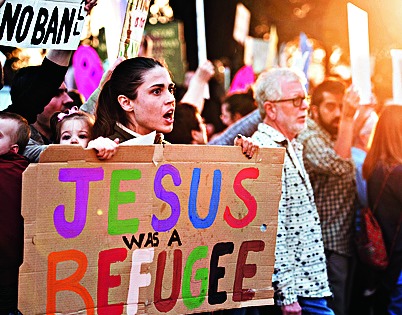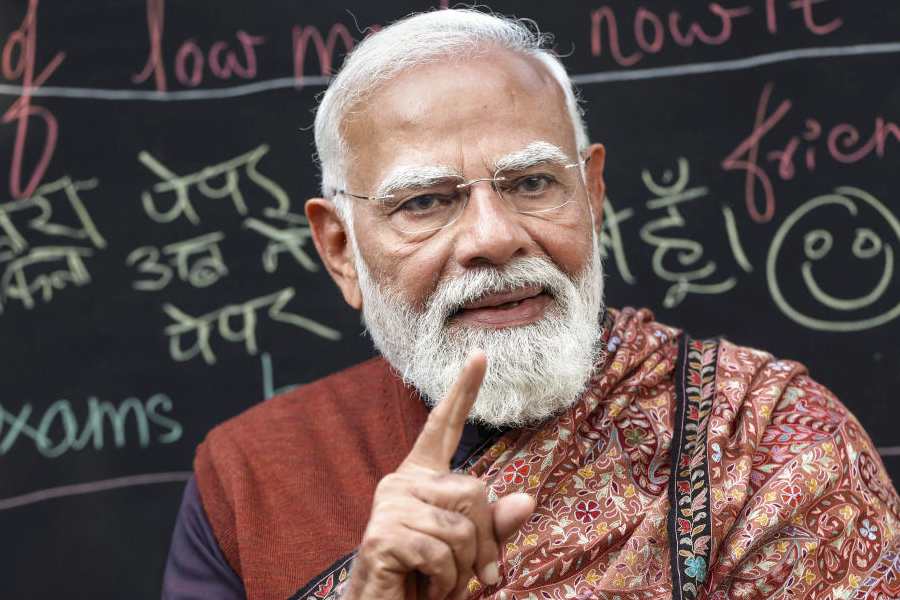
"I'm scared. I'm scared of seeing the life I've built, the life I have planned for, disappear with the swish of a pen... Where is safe?"
These words of Lisette Candia Diaz, self-described as an undocumented Harvard graduate, stem from Donald Trump's campaign rhetoric to deport millions of immigrants, who are already part of the American social fabric but do not have the legal right to remain in the United States of America. Now a few weeks in office, Trump is acting on his promise with a tidal wave of executive orders.
Lisette is a 'Dreamer'. She is among 740,000 young undocumented immigrants who have received a renewable two-year period of deferment from deportation and are eligible for a work permit. On June 15, 2012, the former president, Barack Obama, signed an executive order - the Deferred Action for Childhood Arrivals. It allows those who received a renewable two-year period of deferment from deportation to become eligible for a work permit. DACA allowed this temporary exemption from deportation for those typically brought illegally by their parents into America as minors.
To qualify for DACA, applicants must meet several criteria, including having arrived at the US before their 16th birthday. Applicants should have been under the age of 31 as of June 15, 2012. They must have lived in America continuously since June 15, 2007, been in school or graduated from high school in America. They must not be convicted of felony or serious misdemeanors or pose a threat to national security or public safety. According to one credible estimate, up to 1.7 million young people might be eligible for DACA and the approval process continues.
Trump, who made deporting illegal immigrants his central campaign promise, now poses a real threat to 'Dreamers' like Lisette. As of January 25, he has an executive order withholding funds to 'sanctuary' cities. A sanctuary state, city or county provides safety for undocumented immigrants who are not felons. In sanctuaries, local law enforcement agencies do not cooperate with the US Immigration and Customs Enforcement in identifying and detaining undocumented immigrants. Sanctuaries do not use funds to enforce federal immigration laws and forbid police and local institutions to inquire about a person's immigration status. A city or state can officially designate itself as a sanctuary. There is no single formula for doing so.
The sanctuary movement goes back thousands of years.The concept of sanctuary can be traced back to the Old Testament. The Christian Roman emperor, Theodosius I, set up sanctuaries under church control in 392 AD. Churches in medieval England were given a right to provide sanctuary in 600 AD. In the US, the sanctuary movement began in the early 1980s to provide safe havens for thousands of Central American refugees fleeing political violence in El Salvador and Guatemala. The Ronald Reagan administration, which provided funds, training and arms to the juntas of El Salvador and Guatemala, was opposed to providing asylum status to these refugees.
Defying US federal law, immigrant rights activists are utilizing civil disobedience tactic. In 2016, more than 700,000 minors fled gang violence and economic crisis in Central America and crossed the Mexican border into the US. After weeks of harrowing journeys, many surrendered to US border patrol authorities. Churches picked up part of the burden. Obama was heavily criticized for encouraging this surge of refugees.Once again, grassroots organizers in churches, campuses and cities are seeking to protect the lives of 'Dreamers'.
The battle over immigration is intense. Anti-immigrant sentiments reached a crescendo with the murder of Kathryn Steinle. An undocumented immigrant with seven felony convictions had murdered her. He had been deported to Mexico five times. Seizing the opportunity this crime provided, Trump, campaigning in the Republican primaries, popularized the notion that sanctuary cities allow violent criminals to roam free by shielding them from deportation.
There are an estimated one million undocumented 'aliens' with serious violent and criminal records. Obama, Hillary Clinton and most Americans agree that they should be deported as soon as possible. Candidate Trump, the Republicans and other right-wing groups deliberately conflated undocumented immigrant felons with the protection that sanctuary cities provide to law-abiding immigrants to whip up the opposition to illegal immigrants among voters. Incidentally, the crime rate is lower among undocumented immigrants. They commit fewer felonies than legal immigrants and citizens.
Some universities, churches, synagogues and cities are coming together to oppose deportations and offer their sanctuaries as safe havens. Students and faculty across the US are also mobilizing to develop protocols to protect the most vulnerable members of their community. They seek to provide sanctuary for undocumented students, workers and their families on their campuses. They are demanding that the police be prevented from entering the campus without the permission of the university.
New York and San Francisco are among more than 39 cities and 364 counties that describe themselves as sanctuaries. San Francisco has unequivocally renewed its commitment in spite of Trump vowing to cut off federal funding to sanctuary cities in his first 100 days in office. The Board of Supervisors resolved: "California is the sixth largest economy in the world. The Bay Area is the innovation capital of the country. We will not be bullied by threats to revoke our federal funding." It also resolved that, "No matter the threats made by President... Trump... We will not turn our back on the men and women from other countries who help make this city great, and who represent over one third of our population... there will be... no withdrawal of rights..."
The mayor of New York has vowed to resist federal efforts to deport undocumented immigrants and other police actions against minorities as well as moves to deny health services to women and the poor. The police commissioner of Los Angeles has publicly declared how sanctuary helps the police fight crime as undocumented immigrants report crimes committed or attempted on them.
Ensuring a safe/sacred space for the most vulnerable is a moral imperative for many in the religious and progressive political traditions of America. The fierce commitment to protect civil liberties encouraged the American Civil Liberties Union to stand up and fight against attacks on civil rights that are expected during the Trump presidency. Anthony D. Romero, the intrepid executive director of the ACLU, was able to raise more than 7.2 million dollars from 120,000 individual donations in one week after Trump was elected. ACLU has vowed to take action to block attempts to implement mass deportation and uphold moral commitments to protect the vulnerable and the disadvantaged like undocumented immigrant parents and their children threatened with deportation to lands they no longer belong to.










